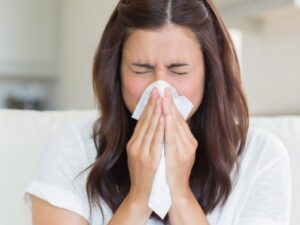The effect of caffeine on our body – both good and bad – is hotly debated and highly controversial even amongst health experts. Opinions vary and there has never been a consensus. So here’s a sum up of current medical opinion
Did you know that over 2 billion cups of coffee are consumed in the world every day? The coffee industry is worth over 100 billion US dollars. It is one of the most sought after commodities in the world, second only to crude oil. And then, there is the caffeine fix we get from colas, tea, cocoa and other caffeine containing beverages and confectionaries. Many of these ‘coffee alternatives’ to caffeine are consumed by children as well. So I think it is safe to say that we are a planet full of caffeine junkies!
So is caffeine good or bad for you? The research and statistics have often swayed on both sides of the debate. But what is universally accepted is the fact that caffeine is indeed a psychoactive drug and a natural stimulant. It produces effects qualitatively similar to low doses of cocaine and amphetamine, providing classic central nervous stimulation. This includes increased energy, decreased sleepiness, and a better ability to concentrate and memorize. Those who have a problem with caffeine addiction and dependency, complain about feeling grumpy and lethargic without having their regular dose of coffee. This led to the coinage of the urbane term – ‘procaffinating’. It is described as a tendency to put off doing anything until you have had coffee!
Caffeine also stimulates the heart, the muscles and the centres that control blood pressure. A dose of 200-400 mg per person per day, equivalent to 2-4 cups of brewed coffee a day, is considered to be moderate caffeine intake. Some studies suggest this dosage has various health benefits. And other studies indicate that as little as 250 mg per day (about 2 ½ cups of coffee) may negatively impact our health. So which of these statements is true? It all comes down to how your brain and body reacts to caffeine, and this in turn may be genetically wired. Most people who consume caffeine (including children) do get mildly addicted to it. This means that without their daily caffeine fix, people may actually experience unpleasant withdrawal symptoms. This is the primary reason for coffee being so popular. However, caffeine addiction is unique because unlike other drug addictions, one does not need higher and higher doses of caffeine in order to get their ‘fix’. Most caffeine addicts remain fully functional on the same amount of coffee taken for years on end. During periods of anxiety and mental taxation, it is normal for people to increase their intake to 600-1000 mg of caffeine a day. This is about 6-12 cups of coffee a day. Most of the detrimental effects of coffee are experienced in this dosage.
Here is a list of potential health benefits of caffeine –
1) Coffee definitely fights fatigue. It increases alertness, and gives the brain and body an energy jolt. Even small amounts can reduce sleepiness, increase alertness and concentration, and speed up response and reaction time. It can also increase reading speed, which is why it is an all-time favourite with bookworms!
2) Caffeine improves short term and long term memory.
3) Caffeine elevates mood and feelings of well-being. Several psychologists have suggested that coffee has an antidepressant- like action on the brain. One study even suggested that coffee drinking can lower suicide risk in adults.
4) Caffeine has pain relieving properties as well. It is often added to painkillers and headache medication.
5) Drinking 3 cups of coffee a day can protect against liver cancer.
6) Drinking 4 cups of coffee a day can protect against mouth and throat cancer.
7) There are studies that indicate that coffee drinking can protect (not treat) type 2 Diabetes, cardiovascular disease and stroke. Since these are the some of the most common causes of death, it is no wonder that coffee drinkers have been found to live longer.
8) Caffeine protects the brain against Parkinson’s disease and Alzheimer’s. ‘Judicious’ use has been recommended for elderly people, to protect the brain from age related memory loss.
9) Caffeine has helped people with asthma, gall bladder disease, ADHD (attention deficit hyperactivity disorder) and low blood pressure. It can also improve the breathing of prematurely born babies!
10) A cup of coffee is full of antioxidants. Coffee contains Vitamin B1, B2, B3, B5, folate, manganese, magnesium, potassium and phosphorus. Having said that, there is no nutritional need for caffeine in your diet.
11) Coffee can boost metabolism. It also has a mild laxative effect. This helps people lose weight.
But it’s not all good news. The list of the harmful effects of caffeine is even longer.
1) Caffeine is addictive. For those who are hooked on it, not getting their daily cuppa can leave people grumpy, tired and lethargic.
2) Caffeine and headaches have a twisted connection. At the right dosage, caffeine can fix a headache and perk you up. Especially if you are dependent on caffeine. But too much coffee can give you a headache as well.
3) Although caffeine can act as a pick-me-up for someone who’s depressed; it can worsen anxiety and trigger panic attacks in those who are prone to it. It can leave you feeling jittery and on-edge. Too much caffeine will improve reaction time, but can impair judgement.
4) Caffeine can make your heart race and increase blood pressure. So if you suffer from arrhythmia, irregular heartbeat, glaucoma or a weak heart, you must stay off the caffeine. It can worsen some of the symptoms of menopause, like palpitations and hot flashes.
5) Caffeine can cause digestive distress as well. It can cause or worsen stomach acidity, nausea and diarrhoea.
6) Caffeine is a diuretic. This means it stimulates the kidneys into producing more urine and dehydrating your body. This causes thirstiness. Caffeine does not quench thirst. And it is NOT a cure for a bad hangover.
7) Excess caffeine in your system can lead to weak bones. It interferes with your body’s absorption of calcium. It also interferes with your body’s ability to absorb iron and Vitamin C from your diet.
8) Excess caffeine can cause your muscles to ache and twitch. It can flare up your gout.
9) Too much coffee can reduce your chances of getting pregnant. Caffeine can pass through the placenta of a pregnant woman. In most cases, coffee is safe to drink in pregnancy. But more than 2 cups a day can slow down foetal growth and increase the risk of miscarriage. Breast feeding women should not take caffeine to stay awake at night. This is because the caffeine seeps into your breast milk and will keep the baby awake and fussy.
10) Caffeine can mess your sleep cycle. Having coffee at night can make it hard for you to fall asleep, stay asleep or have a deep and peaceful sleep. Caffeine users are more likely to toss and turn during the night. This could leave you feeling tired and sleep deprived the next morning. Having more coffee will only make matters worse. Avoiding caffeine for 24 hours will improve the duration and quality of your sleep.
11) Caffeine Intolerance – True caffeine allergy is rare. What is more common is caffeine intolerance and certain people are just genetically wired to suffer from it. Even small amounts of caffeine can cause palpitations, nausea and vomiting, tremors and insomnia.
12) Caffeine dependence and withdrawal symptoms – While caffeine intolerance is known, what is more common is for people to develop tolerance to caffeine over a period of time. This leads to a physical dependence on caffeine and in some, this can happen with a dose as small as 100 mg a day (1 cup of brewed coffee). The term ‘addiction’ would be medically inaccurate in terms of caffeine. You can tell you are hooked, if you suffer from typical withdrawal symptoms when you try to stay away from coffee. The symptoms include headache, tiredness, irritability, muscle pains and stiffness, flu like symptoms, nausea, and a craving for caffeine. The symptoms can set in as early as 12 hours after quitting, depending on how many cups of coffee you have in a day. Quitting caffeine altogether can lead to severe withdrawal symptoms, which can leave you functionally impaired. The right way to come clean is to slowly reduce your caffeine intake and gradually switch to decaffeinated coffee.
13) Caffeine overdose – Caffeine overdose and even death from excess caffeine has been well documented. This could be from taking in too much coffee, energy drinks, caffeine pills or just eating too much coffee grinds. A dose over 1000 mg can cause an overdose. But if you suffer from caffeine intolerance, then you can find yourself poisoned with a much lower dose. The symptoms of an overdose include vomiting, breathing trouble, convulsions, hallucinations and irregular heartbeat. Combining caffeine with certain drugs can multiply the toxic effects of caffeine, on almost every system of your body.
So, should you be drinking coffee or not? It all comes down to knowing your limits and how much caffeine YOUR body can metabolize. In the check and balance of things, caffeine is more harmful than beneficial. The best way to have coffee is in the morning, and once more around late afternoon, when the caffeine is starting to wear off. Do not have it late in the evening. Have filtered coffee, or better yet, decaffeinated coffee, to minimize the ill effects. Avoid it in case of pregnancy, diabetes, hypertension, anxiety or heart disease. Cut back on the amount of sugar you use in your coffee. Keep in mind that one or two cups of coffee can improve memory and concentration. But having a double dose does not double the brain boosting benefits. Having too much coffee is futile and counterproductive. Caffeine is the only socially acceptable psychoactive DRUG. Respect your limits and do not abuse it.




